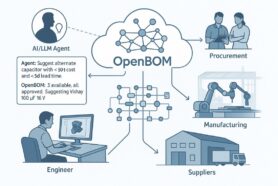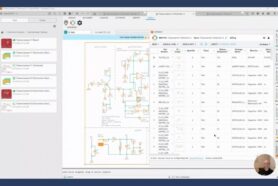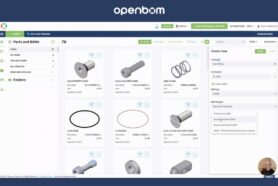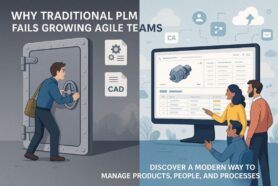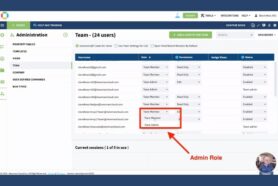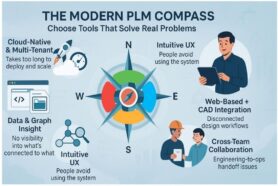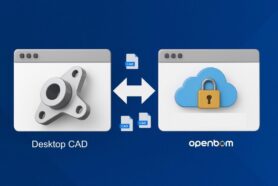
I had a call with a prospect who requested the ability to export files and perform custom file concatenation, including multiple attributes (e.g., Part Number, Revision, Description, etc.). According to him, this allows for easier file sharing and simplified access (e.g., search by description), as well as supporting revision control (ensuring the file name includes the revision). This conversation is a good demonstration of the “folder/file” data management paradigm that exists in the industry.
The old folder/file paradigm is easy, but inefficient when requires to support complex product data, digital thread and granular data sharing. What should we do?
In the world of engineering and manufacturing software, the traditional paradigm of file and folder management is becoming increasingly outdated. Companies are embracing a paradigm shift. The shift from “folder/file” paradigm to a more dynamic and flexible data management approach is revolutionizing how data is shared and managed. In this article I will show how OpenBOM facilitates this transition, enabling a more efficient and semantically rich data-sharing environment.
Traditional Approach: File-Based Data Sharing
For many engineering teams and manufacturing companies, data sharing has long been synonymous with file sharing. Typically, this involves saving files in derivative formats such as JT, STEP, or PDF, and sometimes in native CAD formats. The “semantics” of data—critical information like part numbers, descriptions, and revisions—are often embedded within file names. Users frequently find themselves juggling files with names packed with metadata, resembling a hammer-and-nail approach where every problem looks like a nail to be hammered with file names and folders.
OpenBOM: Transforming Data Management
OpenBOM revolutionizes this traditional approach by offering a flexible data model with rich semantic definitions. Instead of treating data as isolated files stored in folders, OpenBOM allows for the creation of different “objects” with custom attributes. This enables the creation of semantically meaningful data records, such as catalogs for different item types, structured bills of materials, projects, orders, and more. Data is no longer presented as static files but as interconnected data records.
OpenBOM’s flexible data model works by allowing users to define custom attributes and create rich semantic connections between various data objects. This approach not only simplifies data management but also enhances the meaningfulness and usability of the data.
In the picture below you can see a core product model. Similar model exists for other OpenBOM object types. All together they are forming product knowledge graph created by OpenBOM Read more about OpenBOM knowledge graph vision and roadmap.
Role-Based Access with User-Defined Views
Beyond flexible data records, OpenBOM excels in organizing role-based access through user-defined views. These views function as “custom lenses,” enabling specific user types to see only a subset of data defined by the admin. The rest of the data remains hidden, ensuring that users only access information relevant to their roles. This granular level of control enhances security and efficiency in data management.
Real-Time Data Sharing
OpenBOM’s sharing model is the final piece in the puzzle, allowing real-time sharing of data such as catalogs or BOMs with any user. OpenBOM data sharing mechanism allows to share a granular piece of information (eg. catalog, BOM, etc.) with a specific person or group of people and apply a dedicated view.
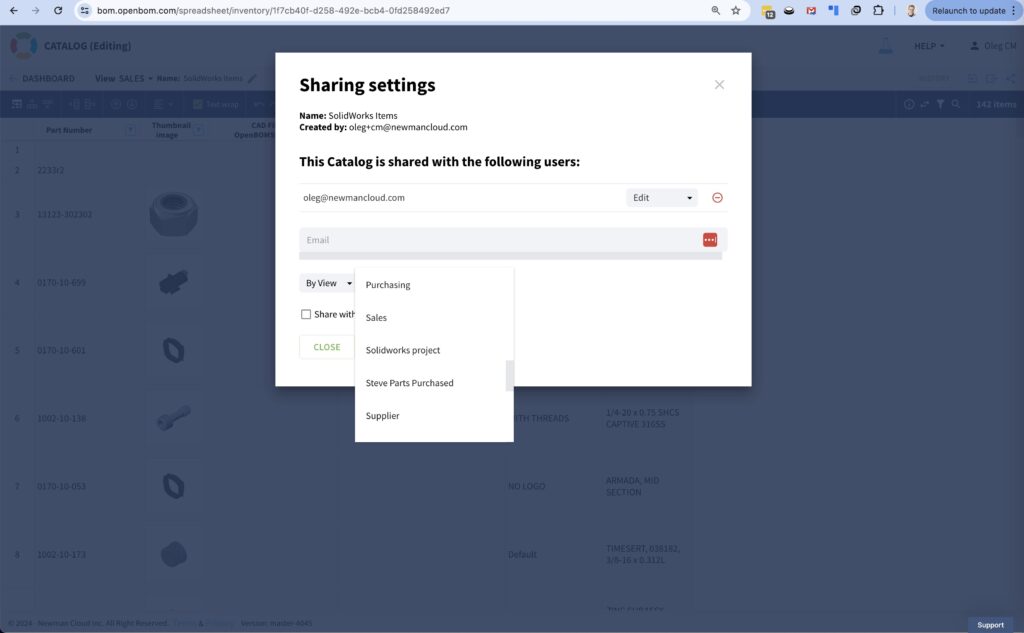
By applying user-defined views, data visualization becomes straightforward, with all data organized into visual representations, semantic descriptions, and file links. The outcome is a seamless data-sharing experience where items, complete with attached files and images, can be readily shared with teams like sales or procurement.
Conclusion
OpenBOM offers a paradigm shift in data management, moving away from the outdated file/folder approach. By capturing semantics and data in an data management environment that is both flexible and semantically rich, OpenBOM enables more efficient and meaningful data sharing. This transformation not only improves data accessibility but also enhances the overall workflow within engineering and manufacturing teams.
Learn more how embrace the future of data management with OpenBOM and experience the benefits of role-based data sharing. REGISTER FOR FREE and start a trial to check how OpenBOM can help you.
Best, Oleg
Join our newsletter to receive a weekly portion of news, articles, and tips about OpenBOM and our community.




